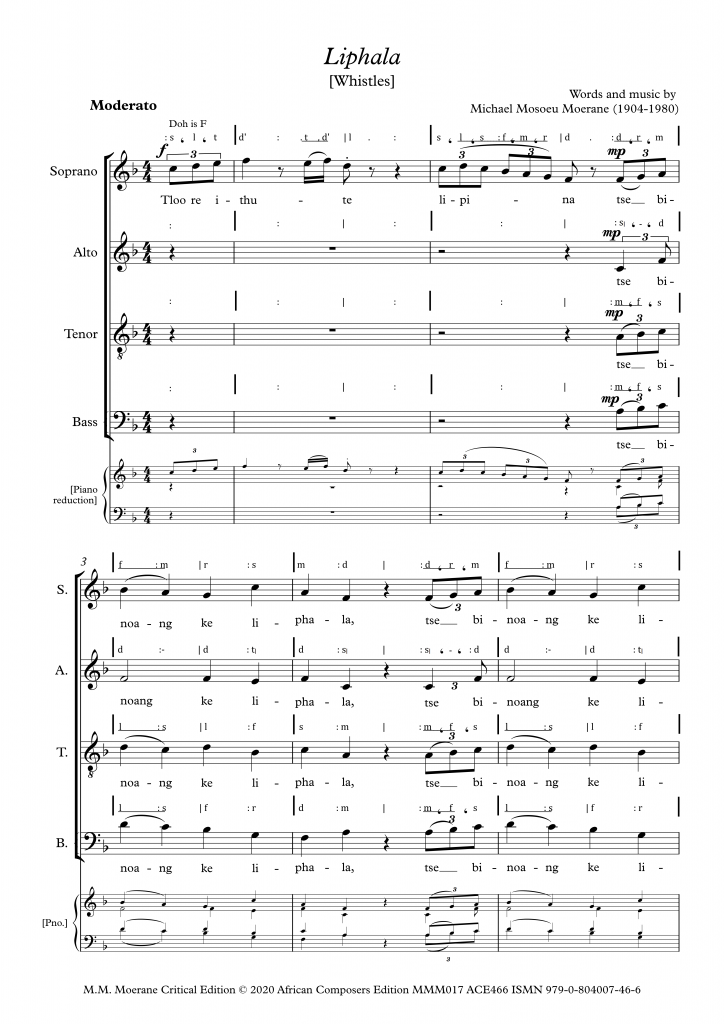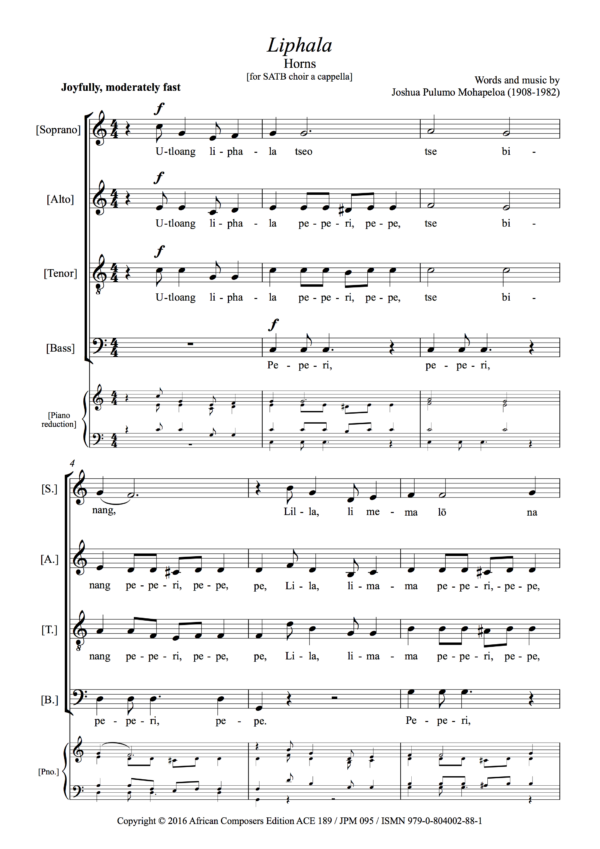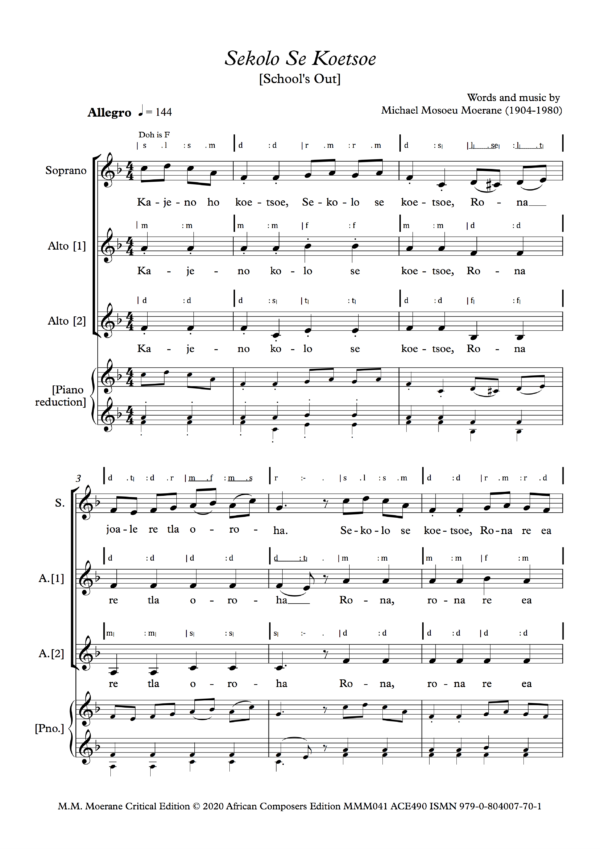Liphala

R49.00
Liphala was one of only two songs Moerane managed to get published during his lifetime. After failing to get it published by Morija Sesuto Book Depot he sent it to the Manager of Lovedale Press in 1937 along with his arrangement of the spiritual, Nobody Knows the Trouble I’ve Seen. Lovedale published both songs in 1938. The reviewer’s report on Liphala prior to its being accepted for publication is given in the ‘Critical commentary’ on the back page.
Moerane wrote the lyrics as well as the music, probably with Lovedale students in mind. He was a student at Lovedale Missionary Institution himself (Lovedale Report 1923, 2-3), and a teacher at Lovedale High School for eight years (Lovedale Annual Reports for 1931, 13; 1932, 35; 1933, 55; 1934, 50; 1935, 59; 1936, 56; 1937, 57; 1938, 15). During 1937, Moerane helped to present the operetta “Prince Ferdinand”’ at Lovedale (Lovedale Report 1937, 19). Clearly, he was familiar with light-hearted musical work written to both entertain and educate, and Liphala reflects this. Not only light-hearted and fun to sing, however, it is also full of knowledge about basic theory of music: simple time, triplets, modulation, intervals, staccato and legato, and expression marks.
Moerane’s former Principal at Peka High School in Lesotho remembers that when he was doing teacher training in Morija, his teacher, Mr Mashology, brought Liphala along ‘and we tried our hands on it, it was such noise! It was too difficult for us. I think practically all his songs are like the Hallelujah Chorus. There’s not very much in the form of language. Moerane repeats, like in the Hallelujah Chorus. There’s just one word! And yet you’re not aware that it is just one word. The music is very, very complex. Very beautiful indeed. Ageless’ (Tseliso Makhakhe Interviewed by Christine Lucia, Maseru, 20 May 2014).
Duration: 2’8″
In order to help choirs learn this song, a free mp3 of the lyrics spoken by Mpho Ndebele is downloadable when the song is purchased along with a rehearsal mp3 of the song at a slow tempo.
The audio sample below was generated from the Sibelius file of the score and the image on the right shows the first page of the score.

